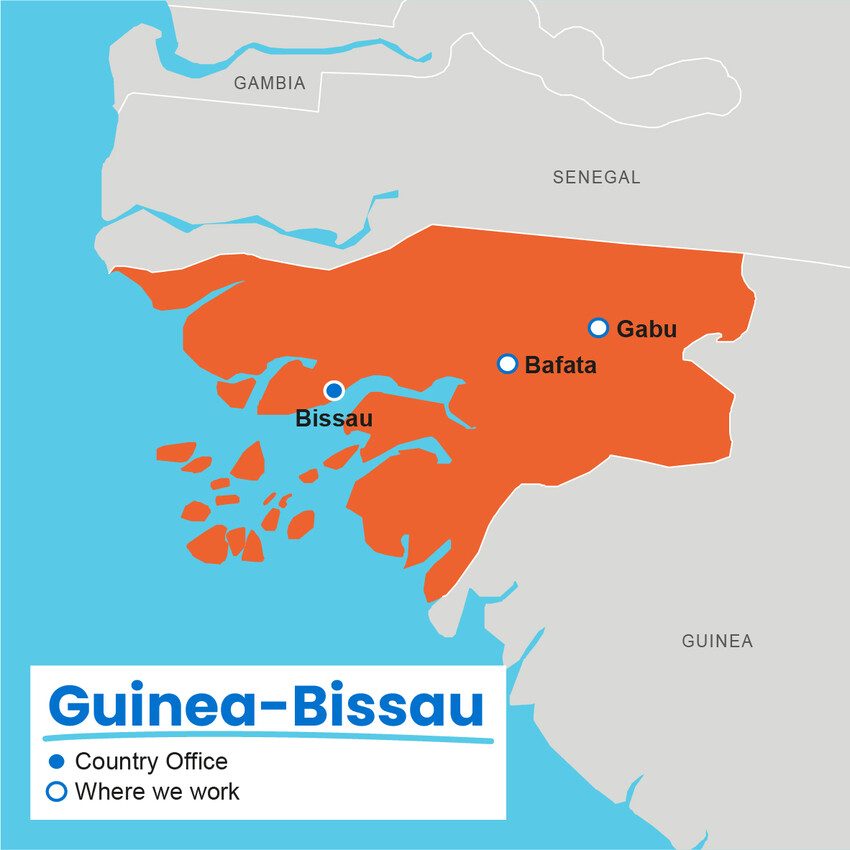Califo creates comprehensive sexuality education youth network
Califo helped create a youth network that promotes comprehensive sex education and works to increase young people's knowledge about their sexual health.
Plan International began operating in Guinea-Bissau in 1995.
Our ambition is for all children live in a society where their rights to education, health and protection are ensured, including in emergency situations.
Working together with children, young people, supporters and partners, we strive for a just world, tackling the root causes of the challenges girls and vulnerable children face.
We are active in the counties of Bissau, Bafata, Gabu, Oio, Farim, and Tombali.
We won’t stop until we are all equal.
Our current priorities include:
Avenida dos Combatentes da Liberdade da Pátria,
Bairro Penha – frente ao edifício do BCEAO,
Caixa Postal 597 Bissau
(+245) 96 663 17 76/ 95 530 79 47
Plan-Int.GNB@plan-international.org
Follow us:
